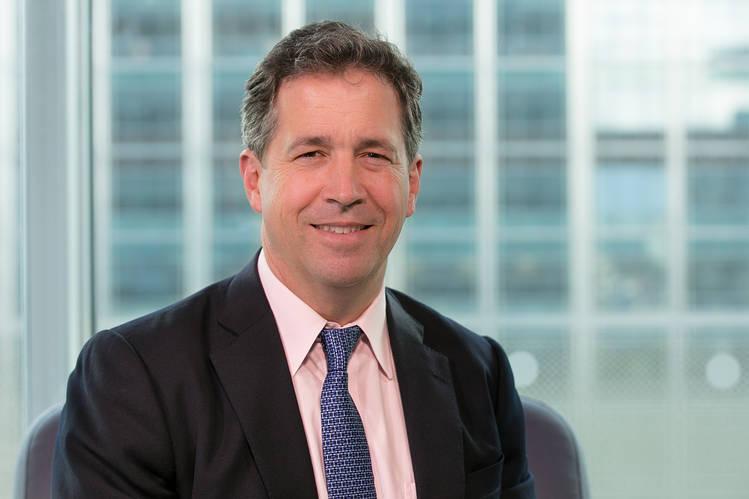Mark Kleinman: Ascential’s messy breakup, audit tensions and ARGA’s impasse

Mark Kleinman is Sky News’ City Editor and is the man that gets the City talking in his weekly City A.M. column.
Ascential learns breaking up is hard to do
For all of life’s Ascentials: it may not be a supermarket, but the FTSE-250 data and technology company certainly has plenty of people queuing for bargains at the moment.
The latest in line is a consortium of investors who want to buy its Cannes Lions advertising festival and Money 20/20 fintech event. For Hyve, the exhibitions group itself recently taken over by a pair of private equity firms, and MediaLink, a strategic advisory firm focused on the media and marketing industries, the timing may be opportune. As I reported on Sky News yesterday, the two strategic buyers also have backing from a blue-chip private equity firm, with Hyve acquiring Money 20/20 – an asset it has long-coveted – and MediaLink taking ownership of the Lions.
While the structure of a transaction remains unclear, I understand at least one offer was submitted to Ascential’s board in the last few weeks.
Yet for a company which professes to specialise in communications, it seems reluctant to practise what it preaches. Its external advisers’ response yesterday to an enquiry about a price-sensitive deal was to not respond at all; while last week, it took an entire trading day to confirm that it was in exclusive discussions with Apax Partners about the sale of WGSN, its consumer trends data arm.
That reticence may not be wholly surprising. Ascential’s break-up plan, confirmed in January, referred to “a series of interdependent transactions” which would include the sale of WGSN, a US listing of its digital commerce assets, and a standalone listing for the events division.
For chairman Scott Forbes, this is high-stakes stuff
It’s hard to see that paying off for shareholders now, for a number of reasons. Firstly, I suspect that Ascential investors underwhelmed by its share price performance would prefer the certainty of a cash offer for the Lions festival and Money 20/20 conference, even though it will presumably have been pitched at a discount to the board’s expectations. Second, the prospects for a successful US listing, which always looked ambitious, seem much shakier in a turbulent IPO market. And third, the WGSN disposal talks are said to be at a meaningfully lower price than the £700m mooted at the start of the process.
For chairman Scott Forbes, this is high-stakes stuff. His biography on the Ascential website boasts of his “over 35 years’ experience in…mergers and acquisitions”. It looks like he’ll need to call on every moment of it to deliver a decent outcome for his investors.
Impasse over watchdog requires fresh audit
1669 days, seven business secretaries and still no end in sight. It was in March 2019 that the government accepted the recommendation of Sir John Kingman, the former Treasury mandarin, to establish an audit and corporate governance regulator that is fit for purpose.
Under Greg Clark, Andrea Leadsom, Alok Sharma, Kwasi Kwarteng, Jacob Rees-Mogg, Grant Shapps and now Kemi Badenoch, audit reform has become a byword for governmental procrastination.
Take these words from Clark, the secretary of state when Kingman’s report was published: “This new body will build on our status as a great place to do business and will form an important part of strengthened public trust in businesses and the regulations that govern them.”
The corollary of that must be that the delay in establishing it betrays ministers’ belief that improving public confidence in business is no longer a priority.
Next month’s King’s Speech is unlikely to feature legislation that would create the Audit, Reporting and Governance Authority, leaving the Financial Reporting Council stranded.
This matters, because the FRC’s latest chief executive – the former Civil Aviation Authority boss, Richard Moriarty – landed in the job only this week.
I understand that there is a reasonable chance that in the next ten days, the watchdog will announce that it has imposed fines totalling more than £25m on KPMG over its many failings in the audit of Carillion, the construction giant which collapsed in 2018.
The juxtaposition of those two events should not be lost on Whitehall officials. In a stuttering economy, a fresh wave of corporate scandals is inevitable, and investor confidence in Britain can only remain strong if regulators are given the armoury they need to fulfil their mandates.
Labour is now promising to deliver the sweeping audit and corporate governance reforms promised by the Conservatives: that vow makes the former’s annual conference in Liverpool next week an intriguing place to test its resolve on an issue that may not matter much to the average voter, but which has serious implications for Britain as a place to do business.
Ex-HSBC exec offers acid test of FCA tensions
Simmering tensions between the Treasury and the City watchdog might be threatening to erupt into something more serious. Fresh from a clash over the appointment of an interim chief executive of the Financial Services Compensation Scheme, the government is now considering a slate of candidates to join the board of the Financial Conduct Authority.

Among the contenders, I hear, is Spencer Lake, the former HSBC head of global capital financing and now a fintech investor. He has significant commercial expertise, something the Treasury is keen to see reflected more prominently on the FCA board.
Amid a race to see sweeping pro-competitiveness reforms implemented before the general election, it will be intriguing to see whether Lake makes the cut ahead of candidates with a bias towards prior regulatory experience.
